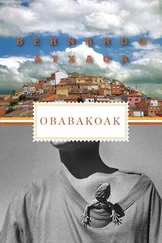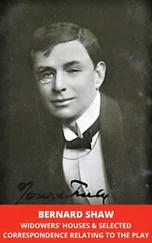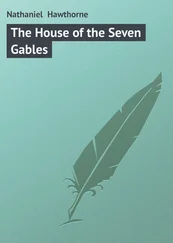He saw Lalande Biran’s blue-gold eyes.
‘Why don’t you shut up?’ the right eye continued to say.
‘You’re sullying the image of the Force Publique,’ said the left eye.
Van Thiegel drank half the champagne in his glass and answered back with his own eyes.
His first eye said: ‘Biran, you bore everyone stiff with your poems and your stories about kings. You’re as monotonous as a mandrill. Christine can’t be too happy knowing that you’ll be back in Paris by the spring. But don’t worry, I’ll console her. She’ll be my woman number 200.’
‘Don’t you look at me like that, Biran,’ said his second eye. ‘If you do, I’ll bash your head in with a chair. That’s how I dealt with the first man I killed.’
However, his mouth refused to translate the messages sent by his eyes.
‘If you’ll excuse me, I think I’ll retire,’ he said respectfully, and at the same time, his legs stood up and carried him outside. As he passed the table occupied by the younger officers, he saw that Chrysostome had unbuttoned two of his shirt buttons, not the usual three or four, but not just one either as he had ordered. Van Thiegel’s mouth opened to repeat the order, but his feet would not stop walking and they carried him over to the glass door.
Arms spread wide and eyes fixed on the jungle, he paused to contemplate the river.
‘Madelaine!’ he cried.
The askari guards in their red fezes remained impassive. When he turned, he saw Donatien, whose Adam’s apple seemed highly agitated.
‘Lieutenant,’ said the Adam’s apple, ‘I thought you might prefer to sleep in the storeroom rather than walk all the way back to your own room.’
‘You’re going to make a wonderful colleague, Donatien. Just you wait, we’re going to be the owners of the most popular bar in Antwerp,’ said the mouth. His feet followed Donatien.
In the corner of the storeroom, underneath the mosquito net, there was now a reddish carpet.
‘You might find the floor a bit hard, but you’ll sleep well. And, as you can see, Livo has been doing it up.’
‘What a charming place!’ said the mouth. Van Thiegel’s eyes took in the boxes of biscuits, the wooden crates full of bottles, the salami hanging from the ceiling, the sweets, the jars of conserves. His legs gave way beneath him and collapsed onto the carpet. ‘Why is everything moving?’ he exclaimed. He felt as if the storeroom were spinning round as if it, too, were part of the roulette wheel. When Donatien closed the door, the darkness began to spin as well.
FOR ONCE, YANGAMBI was not the Roi du Congo ’s final stopping place; instead, the boat continued upstream, heading for the little island of Samanga. On board were thirty askaris in their red fezes, ten young Africans who had chosen to be baptised, ten sappers, fifteen officers, a bishop, three priests and the journalist Ferdinand Lassalle. Just before the steamship set off from the jetty, Lalande Biran and Van Thiegel saluted each other, and the Kodak camera captured the moment: two white men in military uniform, one — Lieutenant Van Thiegel — with his back to the camera and his Albini-Braendlin on his shoulder and the other — Captain Lalande Biran — facing the camera, with the flag of the Force Publique fluttering behind him, and beneath the flag, the head of the Virgin with her smooth brow and her gaze turned heavenwards.
As soon as he had taken the photo, Lassalle wrote in his notebook the caption that would accompany the image. It was an imaginary dialogue between the two men:
‘Keep order while I’m away, Lieutenant.’
‘And you take care of Our Lady, Captain, and may She protect you and favour you with a safe return.’
Lassalle scribbled a few more sentences: ‘The dangers of the jungle, the lions and the rebels’, said the first. The second read: ‘King Léopold will win the first duel. The Virgin’s foot will trample the head of the serpent.’ These would be the motifs on which his first article would be based.
The Roi du Congo headed slowly but surely upriver, and the figure left behind on the beach at Yangambi grew gradually smaller and smaller. Lassalle watched until the figure moved, and he saw that rather than heading for the Place du Grand Palmier, where Van Thiegel had his office, it went straight to the club. The drunken sot! That rude man who called him Petit Livo ! Lalande Biran had told him that Van Thiegel was thinking of returning to Europe, which would doubtless be good news for the Force Publique, just as Lalande Biran’s departure would be a great loss. Fortunately, Chrysostome, that extraordinary marksman, was going to stay in the Congo, and everything indicated that Lalande Biran would propose him as one of Yangambi’s commanding officers. He certainly hoped so. Chrysostome, with his great devotion to the Virgin Mary, was clearly the most devout officer in Yangambi. His second article would be about him. He had already decided on the photo. He would place the young man in the foreground, with the blue ribbon, the gold chain and the medals of Our Lady about his neck; behind him, the statue of the Virgin; and in the background, as much of the landscape as he could encompass from the top of the island of Samanga.
‘I hope you all drown!’ cried Van Thiegel as he walked up to the club, and his eyes grew as dark as those of a black mamba. He hadn’t particularly wanted to be included on the trip to the island, but it was clear that they had all wanted to be rid of him. Another officer could perfectly well have taken temporary command of the post for a few days; given his age and experience, Richardson would have been the ideal choice, and of course, as a Protestant, he had no interest in the whole Virgin rigmarole. No, Lalande Biran had wanted to punish Van Thiegel by denying him any of the advantages that might accrue from that expedition. Lalande Biran’s ambition knew no limits: he wanted to appear in all the interviews and all the photos and to see his poems published in Europe. In a word, he wanted to be both rich and famous. Van Thiegel, on the other hand, would appear in only one photo, taken just before the Roi du Congo set off and in which he had his back to the camera. This was quite wrong, because he was, after all, the officer with most responsibility in Yangambi, the one who restored order, who went boldly into the jungle whenever the rebels surfaced, the one who organised the transport of any of those extra shipments of rubber and mahogany despatched to placate Monsieur X and Christine. But no one in Europe would know of his merits, and if the Military Academy in Brussels ever needed a teacher to give lessons about Africa, no one would think of asking him. He regretted this largely for his mother’s sake, but also as a man in love. How could Christine give him his proper value if there were no photos of him and no interviews in the press? It would then be much harder for him to make her his woman number 200.
As he approached the porch of the Club Royal, he saw a group of five or six mandrills beside the storeroom, and one of them was knocking on the door. There was a scream, and they all sat there, looking at him, mouths open, teeth bared. Van Thiegel gave a laugh that sounded more like a cough. All he needed now was for the monkeys to lose respect for him as well! Perhaps they knew about King Léopold’s rules on the use of cartridges and assumed that he would not, therefore, shoot. What they didn’t know was that he had found a way around those rules and had spent years massaging the figures — for cartridges as well as everything else, especially the figures for rubber and mahogany.
One of the more brazen of the mandrills climbed onto a rocking chair and balanced precariously. Van Thiegel grabbed the Albini-Braendlin he was carrying over his shoulder. The mandrill on the rocking chair and the rest of the group fled into the jungle.
Читать дальше












